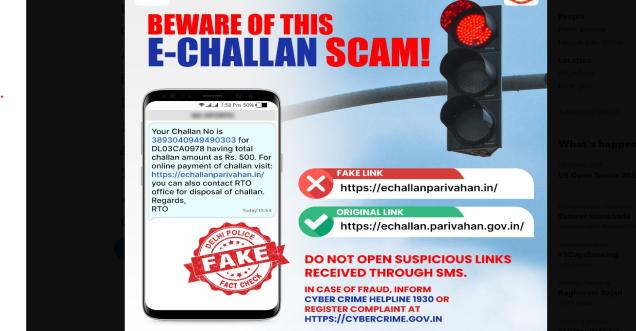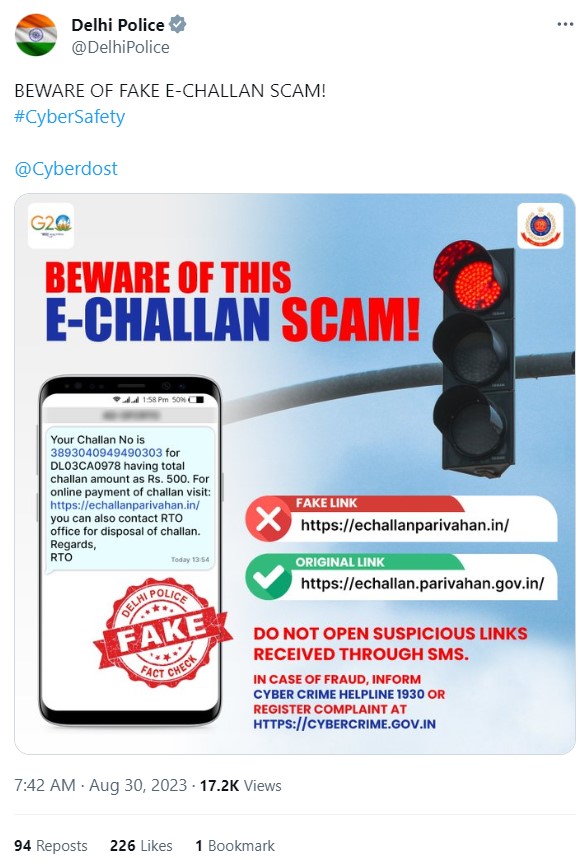
Beware of FAKE E-CHALLAN SCAM, How the e-challan scam works worldwide.
There is a new e-challan scam circulating in India. Scammers are sending text messages to people that appear to be from the Traffic Police. The notes say the recipient has been issued an e-challan and provides a link to pay the fine.

Here is how the e-challan scam works in more detail:
1. The scammers send a text message to the victim's phone that closely resembles accurate e-challan alerts, which appear to be from the Traffic Police.
2. The text message says the victim has been issued an e-challan and provides a link to pay the fine. If vehicle owner clicks the link, their phone security gets compromised
3. The victim clicks on the link, which takes them to a website that looks like the Traffic Police website.
4. The website asks the victim to enter their personal information, including bank account details.
5. The victim enters their information and clicks submit.
6. The scammers steal the victim's personal information and use it to commit fraud.
However, the link is a fake. If you click on it, you will be taken to a website that looks like the Traffic Police website. The website will ask you to enter your personal information and bank account details. Once you have entered your information, the scammers will steal and use it to commit fraud.
Here are some steps you can take to avoid falling victim to this scam:
• Do not click on any links in text messages from unknown senders.
• If you receive a text message that appears to be from the Traffic Police, call the Traffic Police department directly to verify the authenticity of the message.
• Never enter your personal information on a website you do not trust.
• Be aware of the signs of a phishing scam. Phishing scams are emails or text messages that trick you into giving out your personal information. Phishing emails or text messages often contain links that, when clicked, will take you to a fake website that looks like a legitimate website.
If you think you may have fallen victim to this scam, contact your bank immediately and report the fraud. You should also file a complaint with the police.
Here are some additional tips to help you stay safe online:
• Keep your software up to date. Software updates often include security patches that can help protect your computer from malware.
• Use strong passwords and change them regularly. Your passwords should be at least 12 characters long and include a mix of uppercase and lowercase letters, numbers, and symbols.
• Be careful about what information you share online. Only share personal information with websites that you trust.
• Use a firewall and antivirus software. Firewalls and antivirus software can help protect your computer from malware.
By following these tips, you can help protect yourself from online scams.
The e-challan scam has been reported in countries worldwide, including India, the United States, the United Kingdom, Canada, Australia, and New Zealand. In some cases, the scammers have even been able to impersonate government officials to increase their scam's credibility.



















